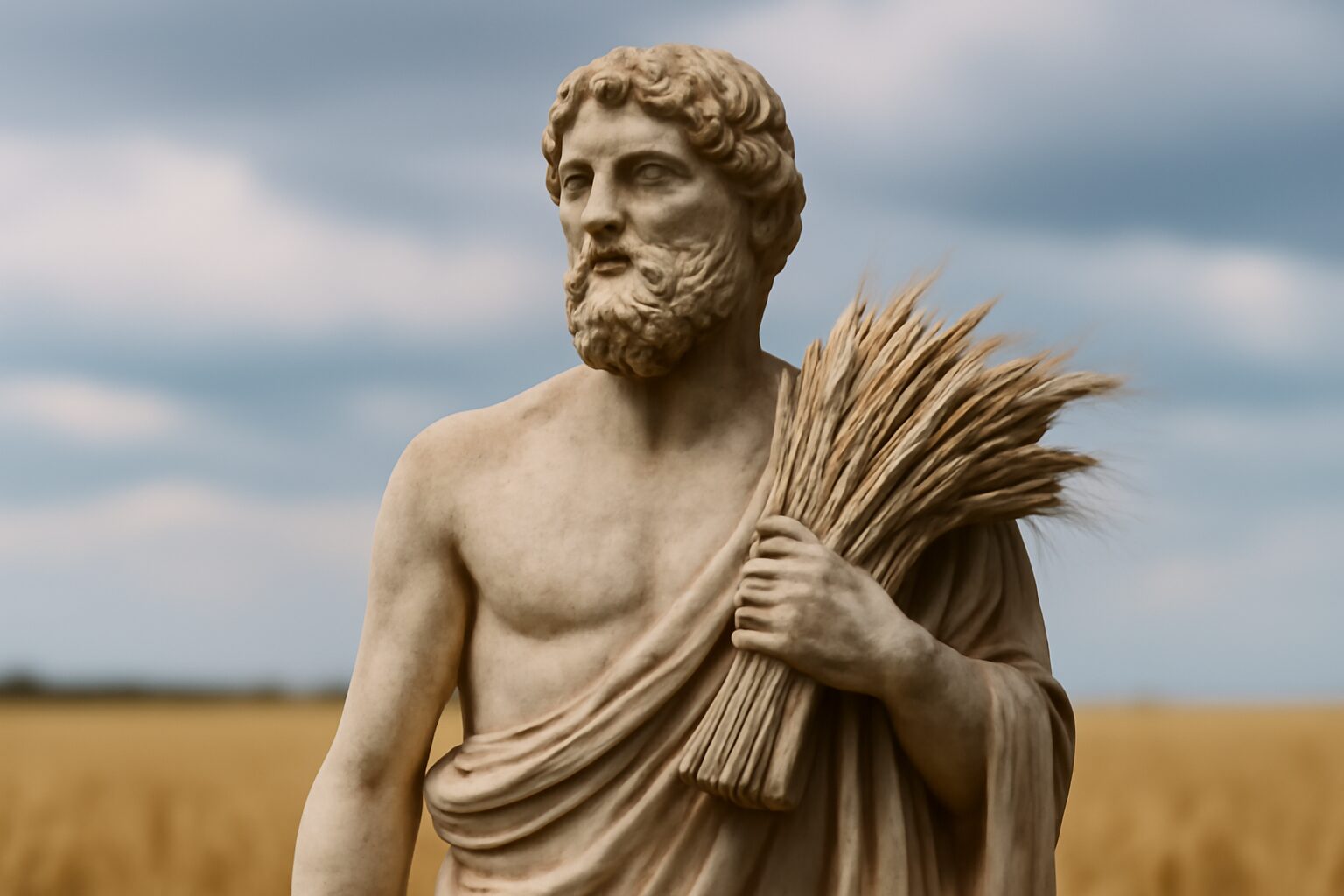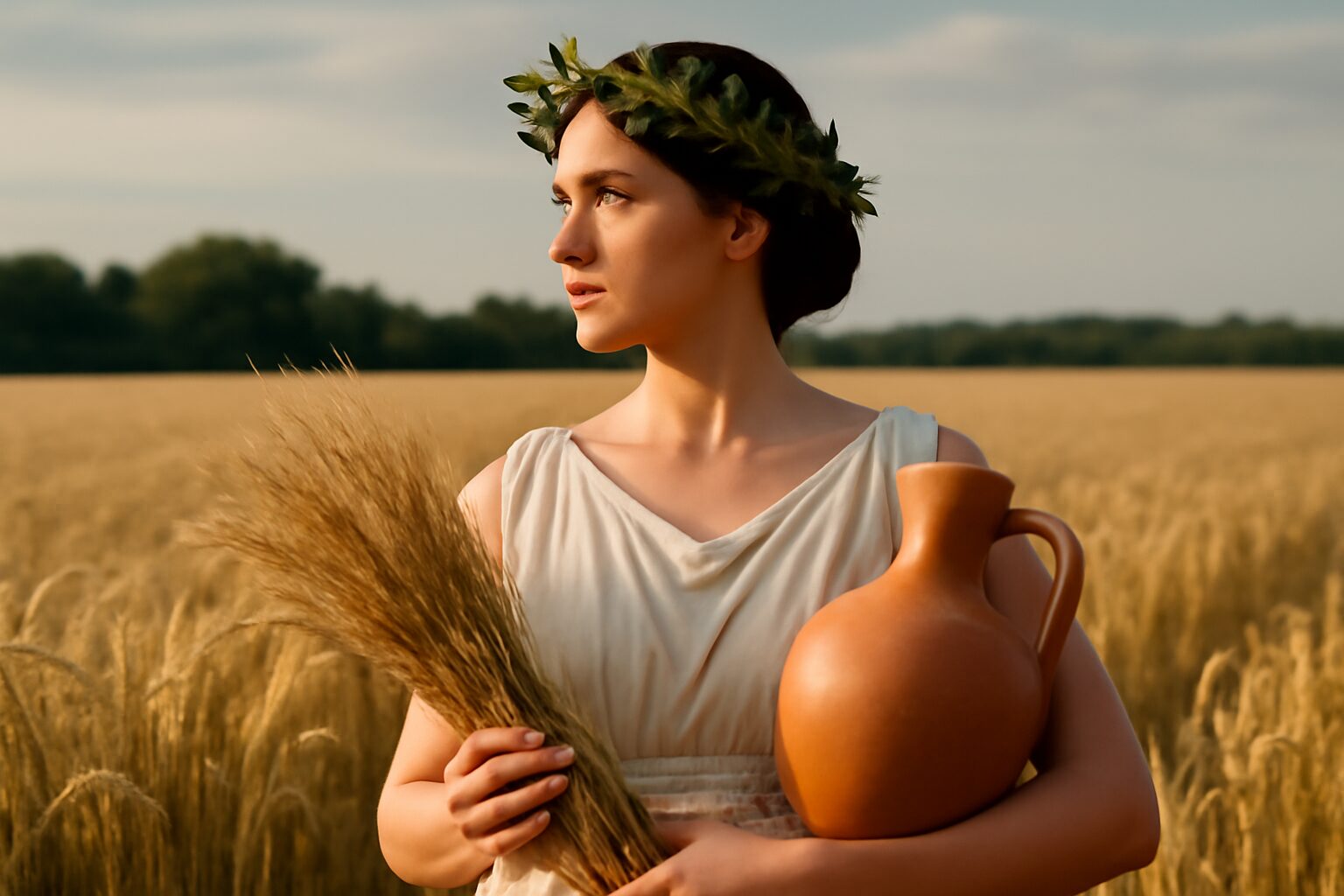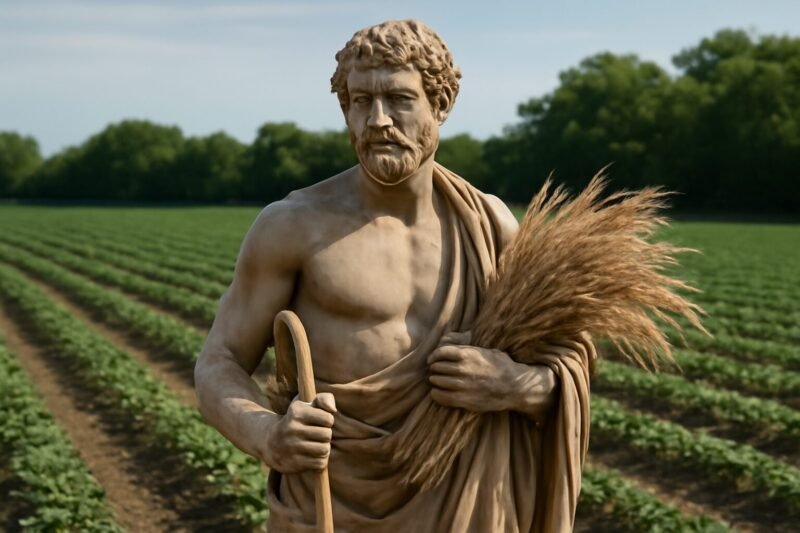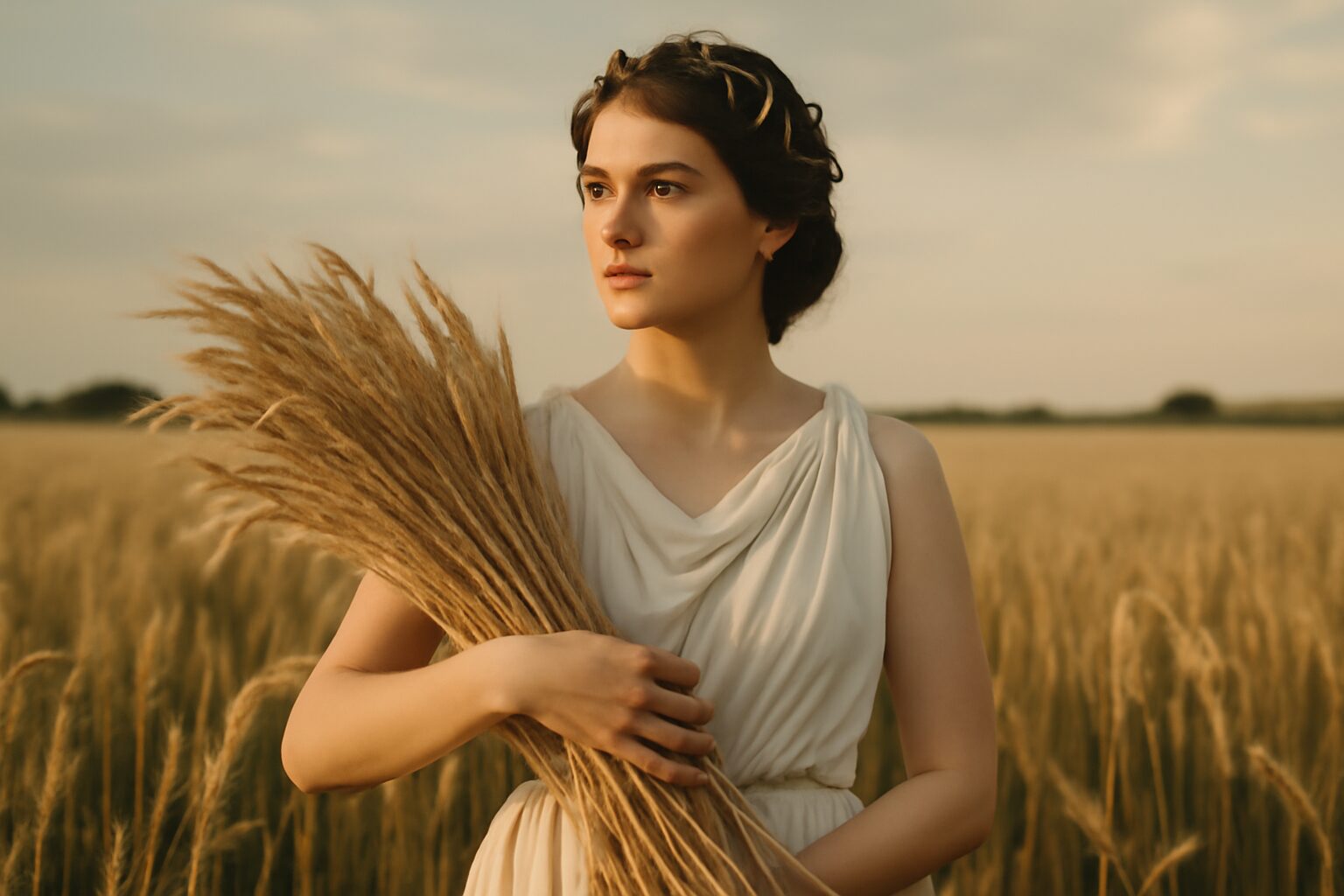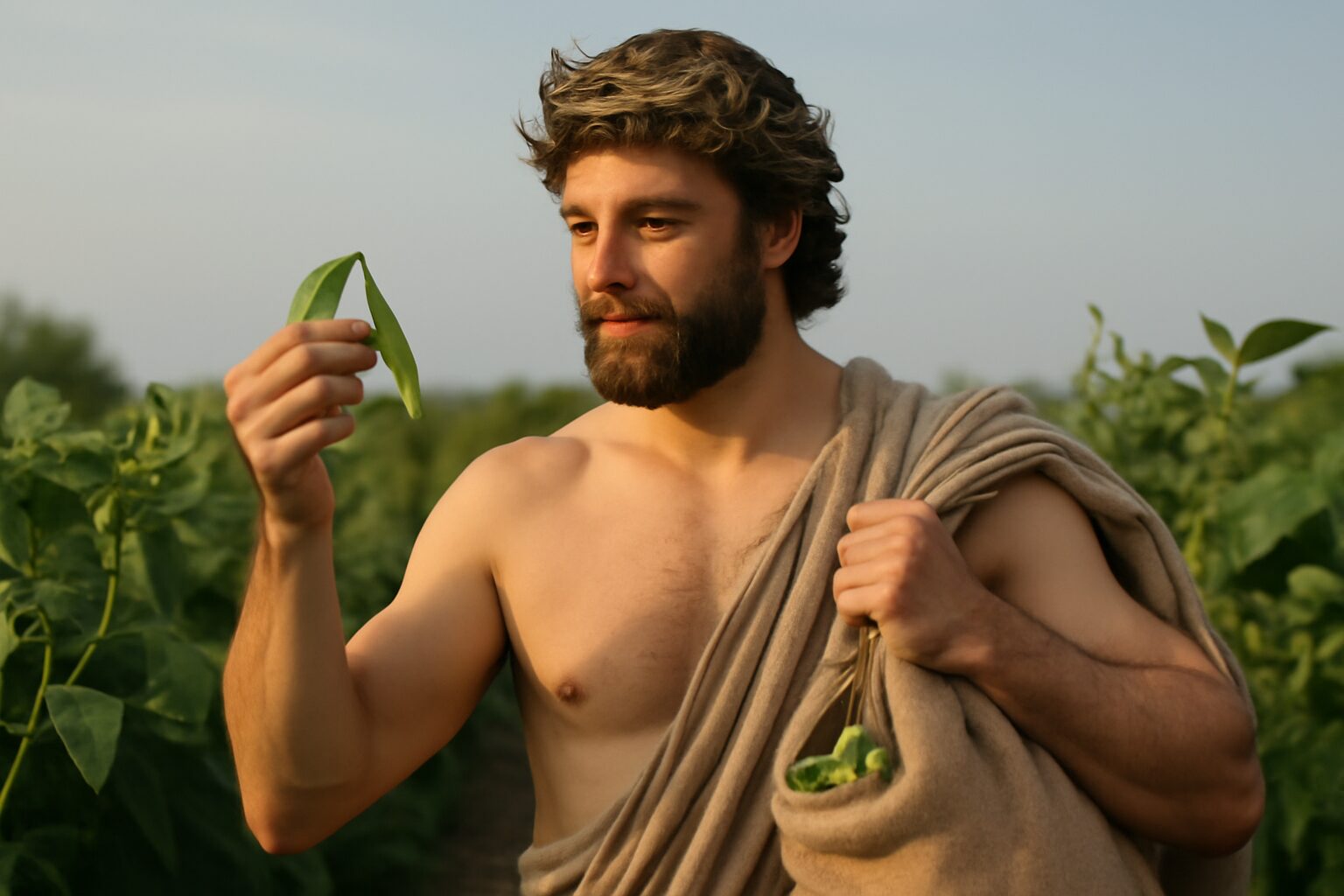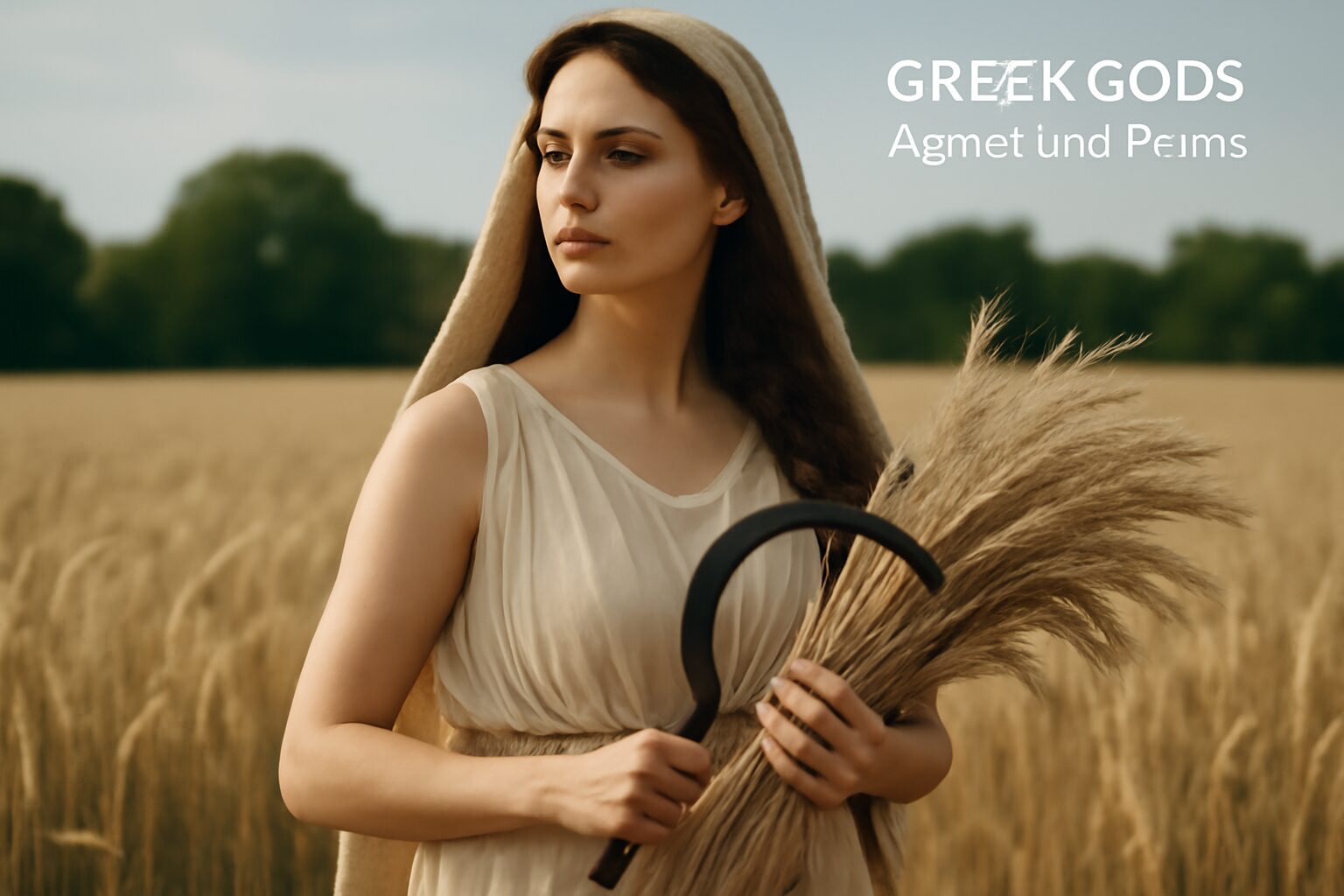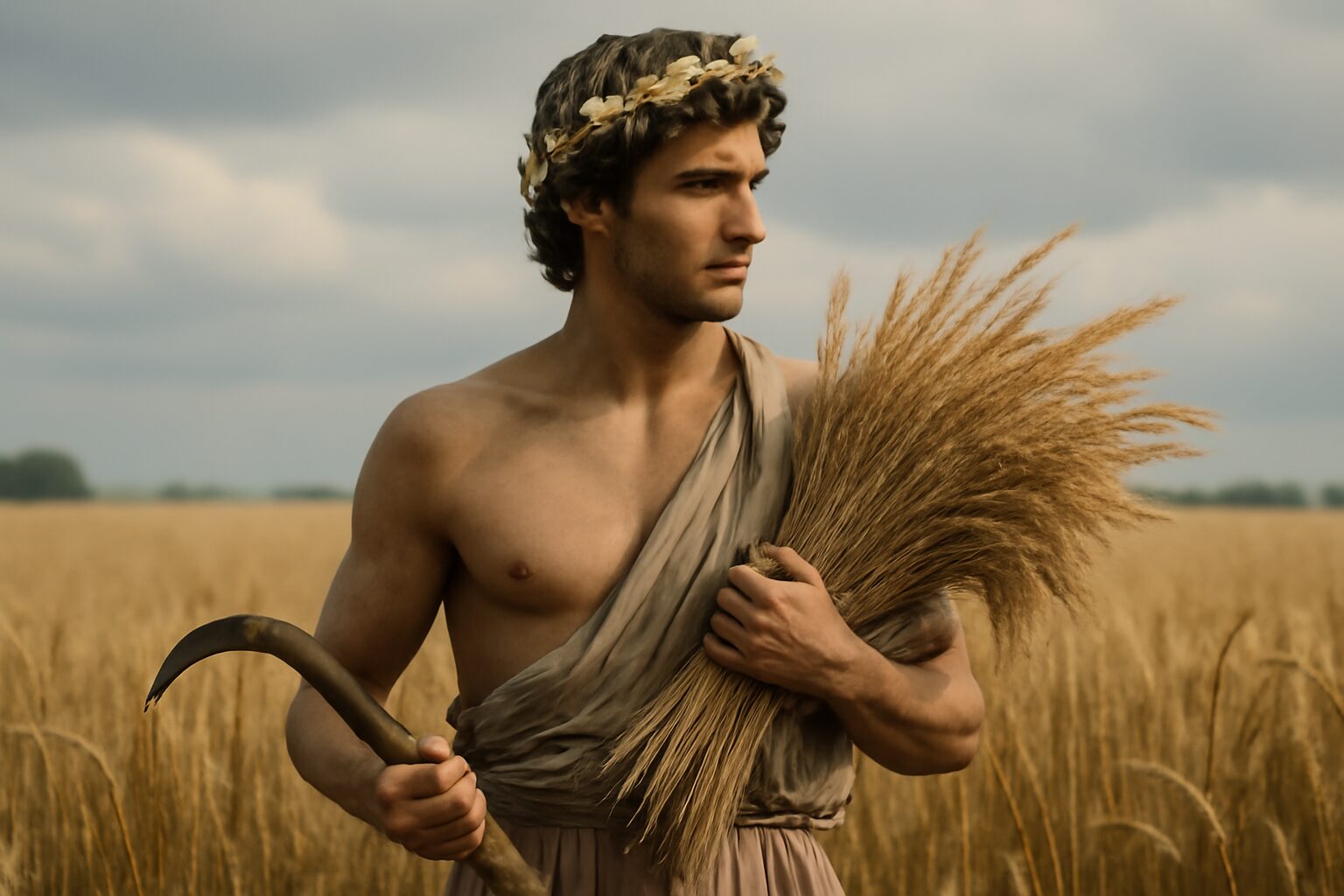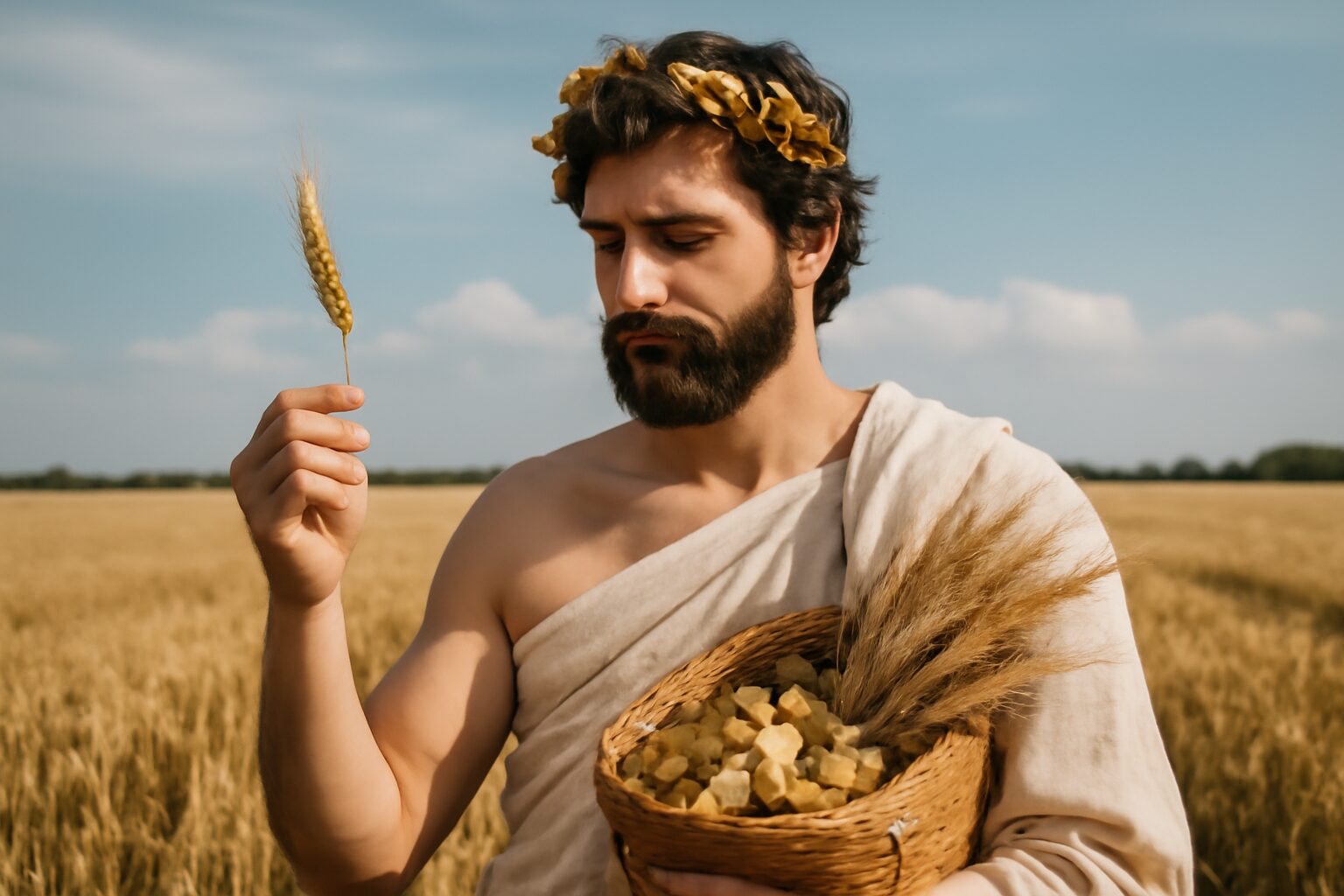Carmanor: The Forgotten Harvest God of Crete
In the rich tapestry of Greek mythology, Carmanor stands as a lesser-known but fascinating deity associated with agriculture, harvest, and purification. Primarily worshiped in Crete, he was considered a god of the earth's bounty and a figure connected to the cycle of life and death.
Mythology and Origins
Carmanor's origins are somewhat obscure, but he appears in several Cretan myths as a local agricultural deity. Some traditions suggest he was the son of Dionysus and Ariadne, linking him to both vegetation and the island's royal lineage. Other accounts describe him as an independent pre-Greek deity absorbed into the Hellenic pantheon.
One significant myth involves Carmanor purifying Apollo after the god killed the serpent Python. This purification ritual established Carmanor's role in cleansing ceremonies and his connection to Apollo's cult in Crete.
Powers and Domains
As an agricultural deity, Carmanor presided over:
• Harvest and crops - Ensuring bountiful yields and protecting fields
• Purification rituals - Cleansing both physical and spiritual pollution
• Vegetation cycles - Governing the natural rhythms of planting and reaping
His association with purification rites made him important in religious ceremonies, particularly those involving transitions or atonement.
Relationships and Worship
Carmanor was closely associated with:
• Demeter - Sharing agricultural domains
• Apollo - Through purification rituals
• Local Cretan deities - As part of the island's unique religious traditions
His worship centered in Crete, particularly at Tarrha where he had a significant cult following. Archaeological evidence suggests his rites involved offerings of first fruits and possibly ecstatic dances similar to those for Dionysus.
Significance in Greek Mythology
While not as prominent as Olympian gods, Carmanor represents:
1. The importance of local deities in Greek religion
2. The connection between agriculture and spiritual purification
3. Crete's unique mythological traditions that differed from mainland Greece
His survival in myth highlights how Greek religion incorporated and preserved earlier, regional cult figures alongside the more famous Olympian pantheon.
Alternative Names for Carmanor
God Name: Karmanor (Greek)
An alternative spelling of Carmanor, reflecting different transliterations from ancient Greek texts.
God Name: Karmanos (Greek)
A variant name found in some regional inscriptions, possibly a dialectal form of Carmanor.
God Name: Carmanus (Roman)
A Latinized version of Carmanor, used in Roman interpretations of Cretan mythology.
God Name: Kassandra's Purifier (Greek)
An epithet referencing Carmanor's role in purifying Apollo after the slaying of Python, sometimes associated with the purification of Kassandra.
Tales about Carmanor
The Harvest of Harmony: Carmanor and Demeter
In the golden age of Crete, the earth flourished under the care of Carmanor, a priest-king devoted to the rhythms of nature. One season, a strange blight crept across the land—crops withered, and the soil turned barren. Desperate, Carmanor offered sacrifices and prayers, seeking divine intervention. Demeter, the goddess of harvest, heard his earnest pleas and descended to the island. Moved by his devotion, she revealed that the blight was born of neglected rites to the earth. Together, they performed a sacred ritual: Carmanor plowed the fields with a golden plow, while Demeter sang hymns of growth. The land burst back to life, richer than before, and Carmanor became her eternal ally in nurturing abundance.
The Gift of the Sickle
As a token of their partnership, Demeter gifted Carmanor a sickle forged from celestial bronze. With it, he taught mortals the art of reaping without waste, ensuring that every harvest honored the balance of giving and taking. This bond between god and mortal exemplified harmony with nature, a lesson echoed in every field tended by human hands.
In his teachings, Carmanor often invoked Euthenia, the spirit of prosperity, to bless the granaries, and sought the guidance of Orthosie for favorable seasons. He also honored Eusebeia, whose presence ensured that reverence accompanied every harvest rite.
The Dance of Revelry: Carmanor and Dionysus
During a vibrant festival in honor of Dionysus, god of wine and ecstasy, Carmanor presided over the offerings of first fruits and grapes. Dionysus, in his mercurial way, decided to test the mortal's spirit. He disguised himself as a weary traveler and joined the celebrations. Carmanor, ever generous, offered the stranger the finest wine and a share of the harvest. Pleased, Dionysus revealed his true form and challenged Carmanor to a dance—a whirl of steps that mirrored the chaos and joy of nature. Carmanor, though a figure of order, embraced the frenzy, and their dance became legendary. It symbolized the union of cultivation and wild abandon, where disciplined harvest meets uninhibited celebration.
The Vine of Eternal Joy
In gratitude, Dionysus blessed Carmanor's vineyards with a unique grapevine that bore fruit year-round, its grapes shimmering with a hint of divine nectar. This vine became a symbol of the joy that arises when hard work and revelry intertwine, reminding all that even the most structured labor can bloom into ecstasy under the right influence.
The revels drew the attention of Hedone, the personification of pleasure, who infused the festivities with delight, while Comus led the processions with unbridled mirth. Carmanor also acknowledged Eupraxia, whose essence of well-being resonated in the harmonious blend of labor and celebration.
Frequently Asked Questions
Who is Carmanor in Greek mythology?
Carmanor was a minor agricultural deity in Greek mythology, often associated with the harvest and fertility of the land. He was sometimes linked to the worship of Demeter and Dionysus.
Why were agricultural deities like Carmanor important in ancient Greece?
Agricultural deities were vital because ancient Greek society relied heavily on farming. Gods like Carmanor symbolized the cycles of nature, ensuring good harvests and fertility, which were essential for survival.
What can we learn from myths about Carmanor and other agricultural gods?
These myths highlight how ancient Greeks understood and respected nature's cycles. They show the cultural importance of agriculture and how people sought divine favor for their livelihoods.
Are there any festivals or rituals associated with Carmanor?
While specific rituals for Carmanor are not well-documented, agricultural deities were often honored during planting and harvest festivals with offerings, prayers, and celebrations to ensure a bountiful yield.
How do agricultural deities like Carmanor relate to modern farming practices?
While modern farming relies on science, the reverence for nature in these myths reminds us of agriculture's deep connection to human life and the importance of sustainable practices.

